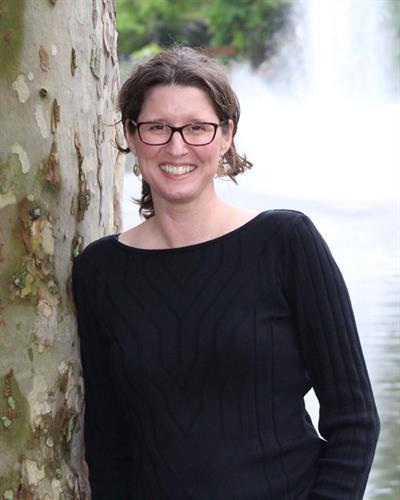Research/Areas of Interest
Early childhood education, school success of young children at risk due to poverty, parenting and family-school partnerships in diverse ethnocultural communities, culturally inclusive STEM curriculum, community-based research collaborations.
Education
- PhD, Psychology in Education, University of Pennsylvania, United States, 2003
- MS Ed, Psychological Services, University of Pennsylvania, United States, 1998
- BS, Psychology, Abilene Christian University, United States, 1996
Biography
I am an applied developmental scientist and community-based early childhood educational researcher whose career has been focused upon fostering better understandings of the early social and learning successes of young children growing up in urban poverty. The existence of seeming intractable achievement gaps between children growing up in poverty and their more affluent peers represents, arguably, the most important educational concern of our time. A particular focus, recently, of my research is understanding how to better support the adult contributors to children's early development: their parents and teachers. With my colleagues and students, I have sought to document the ways in which families from non-dominant groups are supporting their children and how, by having more culturally-grounded information, we can bridge the divides that often exist between the primary helpers in children's lives (i.e., parents and teachers). In more recent research, my colleagues and I have worked to co-construct curriculum and professional development supports for Head Start teachers around science and engineering learning for dual language learners, which incorporates children's home and community contexts and familiar knowledge. Underpinning the research with these adults are attempts to "flip the script," so to speak, to allow for practitioners and family members supporting children's development to tell us what they know, what they do, and how they do it, so that their expertise can inform our scientific knowledge base.
My work involves four main themes, reflecting my overarching commitment to researching, creating and sustaining strong systems of support for young, low-income, urban-residing and dual language learning children. First, my research seeks to document and understand strengths in context. I believe this approach has the greatest potential for informing intervention, because it leverages the positive elements in children's lives while also acknowledging the challenges that exist for many children.
Second, because much of our research has tended to view children and families through the lens of the dominant U.S. culture, the uniqueness of the experience of many children and families has been missed. By obscuring within-group variability that exists, researchers have failed to document the, perhaps, culturally-nuanced forms of support that could be leveraged within the lives of young children to promote well-being and engagement in school. Therefore, through my research, I seek to understand the nature of supports that exist within socioculturally diverse families, and to document within-group variation.
A third theme of my research is grounded in the notion that what we measure and how we measure it matters. Consistent with the commitments described above, I focus on measurement development from a within-group and strengths-based perspective. I employ community-collaborative, mixed-methods (quantitative and qualitative) approaches in my measurement development and validation work. By doing so, my colleagues and I hope to provide the field with critical information for enhancing the lived experiences (at home and at school) of our nation's increasingly diverse student population by conducting research with new measures that reflect their lived experiences.
Finally, as an applied developmentalist, my scholarship is deeply integrated with considerations for practice. Consistent with the other themes, through my most recent research (see more about the RISE project), I seek to develop and refine early childhood curriculum that is responsive to and inclusive of children's home contexts and cultural communities.
My work involves four main themes, reflecting my overarching commitment to researching, creating and sustaining strong systems of support for young, low-income, urban-residing and dual language learning children. First, my research seeks to document and understand strengths in context. I believe this approach has the greatest potential for informing intervention, because it leverages the positive elements in children's lives while also acknowledging the challenges that exist for many children.
Second, because much of our research has tended to view children and families through the lens of the dominant U.S. culture, the uniqueness of the experience of many children and families has been missed. By obscuring within-group variability that exists, researchers have failed to document the, perhaps, culturally-nuanced forms of support that could be leveraged within the lives of young children to promote well-being and engagement in school. Therefore, through my research, I seek to understand the nature of supports that exist within socioculturally diverse families, and to document within-group variation.
A third theme of my research is grounded in the notion that what we measure and how we measure it matters. Consistent with the commitments described above, I focus on measurement development from a within-group and strengths-based perspective. I employ community-collaborative, mixed-methods (quantitative and qualitative) approaches in my measurement development and validation work. By doing so, my colleagues and I hope to provide the field with critical information for enhancing the lived experiences (at home and at school) of our nation's increasingly diverse student population by conducting research with new measures that reflect their lived experiences.
Finally, as an applied developmentalist, my scholarship is deeply integrated with considerations for practice. Consistent with the other themes, through my most recent research (see more about the RISE project), I seek to develop and refine early childhood curriculum that is responsive to and inclusive of children's home contexts and cultural communities.
